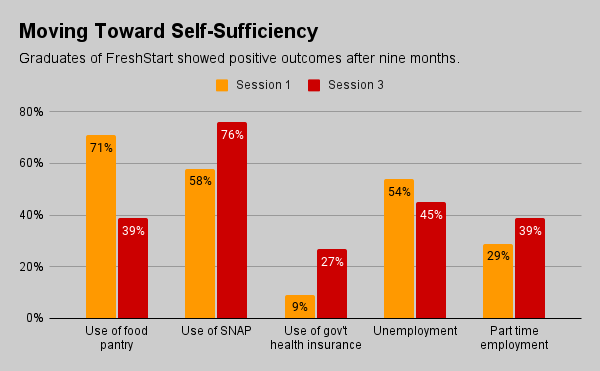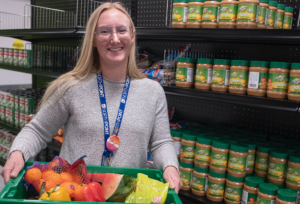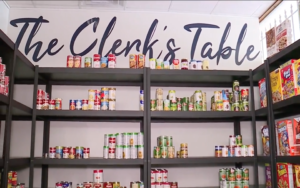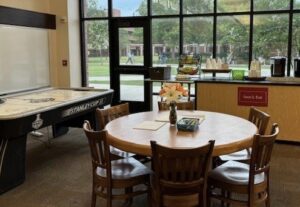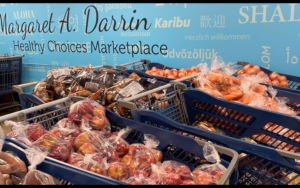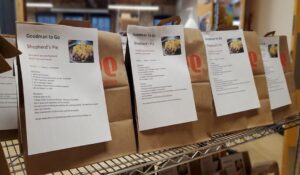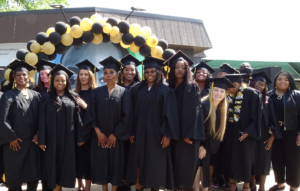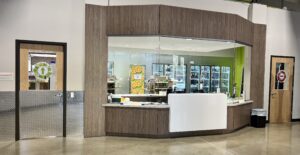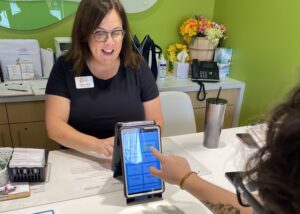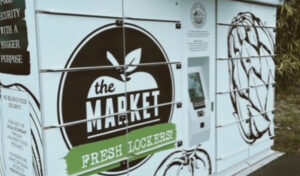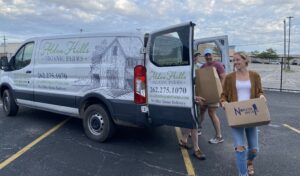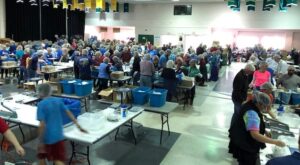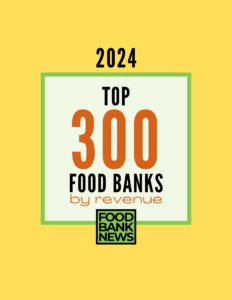The Kelly Center for Hunger Relief in El Paso, Tex., had a pretty good feeling a few years ago about the positive impact of its FreshStart program, which is designed to move food pantry clients toward self-sufficiency. Those feelings were confirmed with the results of a recently released formal evaluation quantifying the program’s success.

Initially launched in 2016 as a three-year pilot, the program uses individualized coaching and education to reduce clients’ reliance on charitable food. Research conducted by the University of Texas at El Paso and funded by Oak Ridge Associated Universities under an agreement with the National Library of Medicine, confirmed the value of this approach.
“Ultimately, we’re always happy to find positive outcomes,” said Dr. Jason Mallonee, Assistant Professor at UTEP and the principal investigator of the study. He is also President of the Board of Directors at the Kelly Center for Hunger Relief. “I wasn’t surprised by the findings. They actually confirmed what I already suspected,” he said.
Those outcomes include a significant drop in how often those who completed the program use a food pantry. Before FreshStart, 71% of participants visited a food pantry weekly to supplement their nutritional needs. By the end of the program, that dropped to 39%. FreshStart graduates also increased their participation by 18 percentage points in both SNAP and other social assistance programs, such as government-provided health insurance.
Program participants also reported general improvements in overall wellness, nutrition, and physical health knowledge, as well as increased motivation to achieve personal goals. Many participants found friendships and community through the program, while others sharpened their English language skills.
According to Dr. Mallonee, the program works so well because it helps people overcome non-food barriers to food security, such as financial or housing instability. “We know that providing food is a crisis solution that’s not necessarily solving the problem,” he said. “It’s meeting a need and is very much needed, but unless we really get to the root causes of food insecurity, that’s not going to change. People are going to continue to be in need of food.”
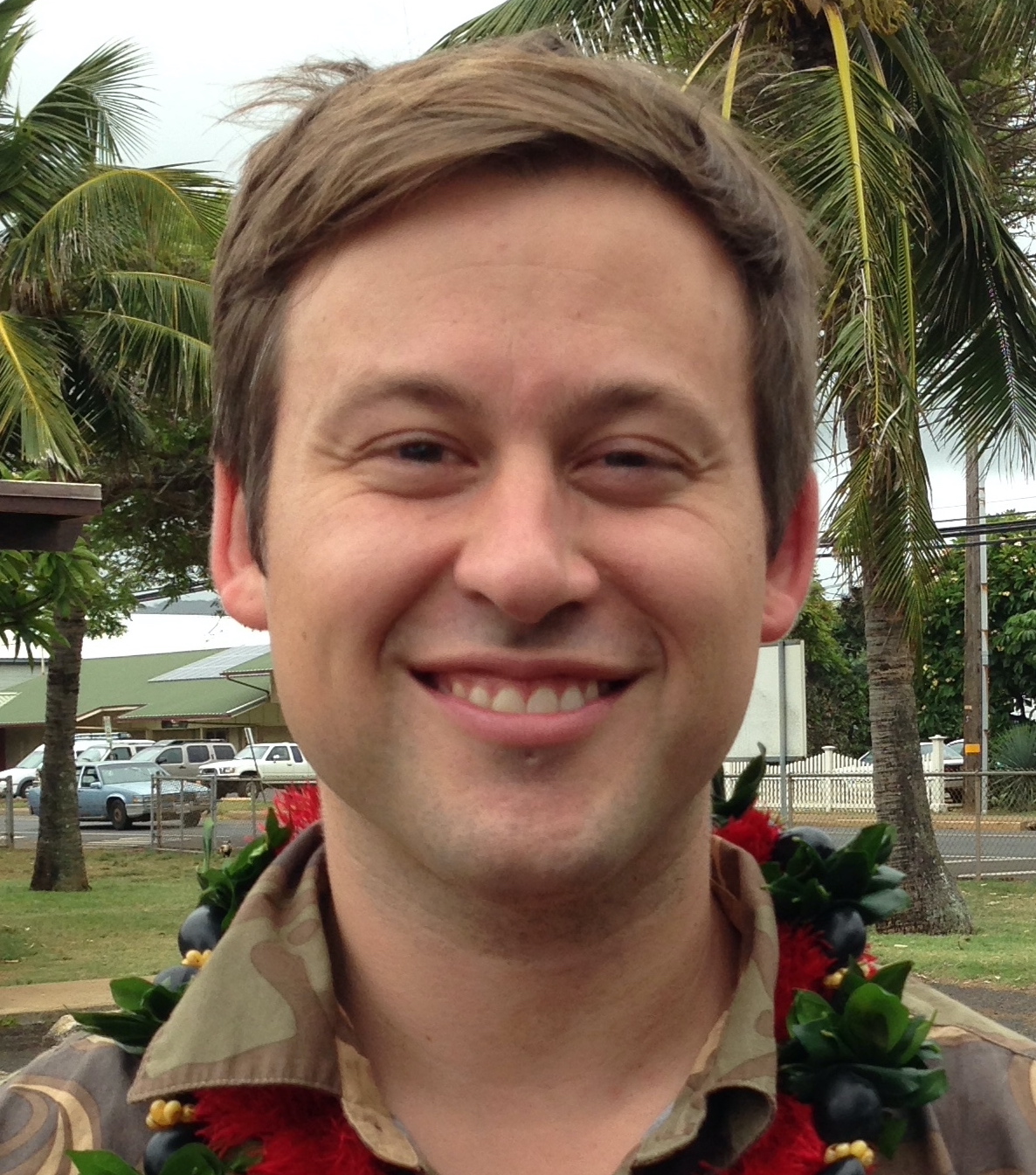
FreshStart is based on the More Than Food framework developed by Dr. Katie S. Martin to help food banks and food pantries tackle the root causes of food insecurity. Dr. Martin has since published a book about reinventing charitable food and started a consulting firm that offers best-practices guidance to hunger-relief organizations.
At the program’s start, participants identify several attainable goals that they believe will help them gain greater independence. Through the program, Kelly Center staff use techniques like motivational interviewing and the “stages of change” model to guide them toward achieving those goals.
From there, they receive food boxes and individualized coaching while taking job readiness or English as a second language classes, technological literacy courses, and other educational programs meant to promote healthy eating and living. “If we’re able to look at the person as consisting of all these different needs, we can start to put the pieces of the puzzle together so they’re able to stand stronger,” Dr. Mallonee said.
While the program is free for participants, it costs the Center about $1,089 for each client who completes it. That works out to about $121 per month per client over the course of the nine-month program, including the cost of case management, classes, supplemental food boxes, and more.
In 2022, the program served 314 members with a budget of $342,000. FreshStart has mostly been funded through grants provided by the Paso del Norte Health Foundation, with smaller and private donations making up the remainder.
Although the impact on the local community may be hard to prove with data, Dr. Mallonee says he’s confident there are positive outcomes — from increased employment to reduced reliance on emergency services. “You’re helping someone to be able to contribute to the community, in whatever capacity that is,” he said. So far, several hundred people have gained greater self-sufficiency through the FreshStart program, he noted.
Most people participating in FreshStart are women providing food for their families (81%). More than 90% are Hispanic or Latino, and more than half were unemployed when they started the program. Fewer than half had stable housing, with nearly a quarter experiencing homelessness or under threat of eviction.
Creating an environment where people feel welcomed and valued is vital. Some program participants stuck with FreshStart classes after dropping out of similar educational programs because of the relationships they formed at Kelly Center, Dr. Mallonee said.
The Kelly Center has also positioned the FreshStart program as a center for experiential learning for students of disciplines like social work and public health. These internships help the center reach more people and guide more participants through the program.
Dr. Mallonee said that other organizations looking to implement a similar model should get to know the More Than Food framework, engage program participants as collaborators, and ensure that they can gain a sense of agency over their own lives.
The center plans to expand the program to different locations, like the University of Texas at El Paso, where the rate of food insecurity is higher than in El Paso County. It is also identifying some areas outside of El Paso County to implement FreshStart-like services.
“Our goal is to grow and expand in a way that’s sustainable,” Dr. Mallonee said. “And to ultimately ensure that no one is hungry.” – Mike Peterson
Mike Peterson is a San Diego-based writer, editor, and strategist who is passionate about finding and telling stories that matter.
Like what you’re reading?
Support Food Bank News
